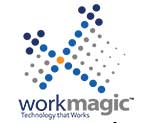Best Practices for Evaluating SMB Backup Solutions
Selecting the right SMB backup solution is a critical decision that warrants a methodical and well-informed approach. To ensure that you make the best choice for your business, consider these best practices when evaluating SMB backup solutions:
- Identify Your Specific Needs: Begin by understanding your business’s unique backup requirements. Assess the types of data you need to protect, the frequency of backups, and your recovery time objectives (RTO) and recovery point objectives (RPO).
- Scalability Planning: Factor in your business’s growth projections when evaluating backup solutions. Choose a solution that can seamlessly scale to accommodate your expanding data needs without causing disruptions.
- Budget Realism: Set a realistic budget for your backup solution. While cost is a crucial factor, avoid compromising on essential features or security to save on expenses.
- Security and Compliance Features: Prioritize data security. Look for backup solutions that offer robust encryption, access controls, and compliance features to ensure your data remains protected and compliant with relevant regulations.
- Ease of Deployment and Use: Opt for a solution that offers an intuitive user interface and minimal training requirements. A user-friendly backup solution can save time and reduce the risk of errors.
- Trial Periods and Testing: Take advantage of trial periods offered by backup solution providers. Test the solution in your real-world environment to ensure it meets your expectations and can recover data effectively.
- Vendor Reputation and Support: Research the reputation of the backup solution vendor. Read reviews, seek recommendations, and evaluate their customer support responsiveness. A reliable vendor can provide assistance when needed.
- Compatibility and Integration: Ensure that the chosen backup solution seamlessly integrates with your existing IT infrastructure, including operating systems and applications. Compatibility issues can lead to inefficiencies.
- Data Recovery Capabilities: Assess the solution’s data recovery capabilities. Determine how quickly it can restore data in case of an outage or data loss, aligning with your RTO and RPO requirements.
- Long-term Data Management: Consider your data retention and archiving needs. Ensure the backup solution supports long-term data management and compliance with retention policies.
- Scalable Storage Options: Evaluate the storage options available, such as local, cloud, or hybrid. Choose a solution that offers flexibility in storage and allows you to adapt as your data needs change.
- Support for Disaster Recovery: Confirm that the backup solution is capable of facilitating disaster recovery. Create and test disaster recovery plans that incorporate your chosen backup solution.
By following these best practices, you’ll be better equipped to assess and select an SMB backup solution that aligns with your business objectives, enhances data protection, and contributes to your overall IT strategy. Remember that the right choice can provide peace of mind, ensuring your business’s data remains secure and recoverable.


